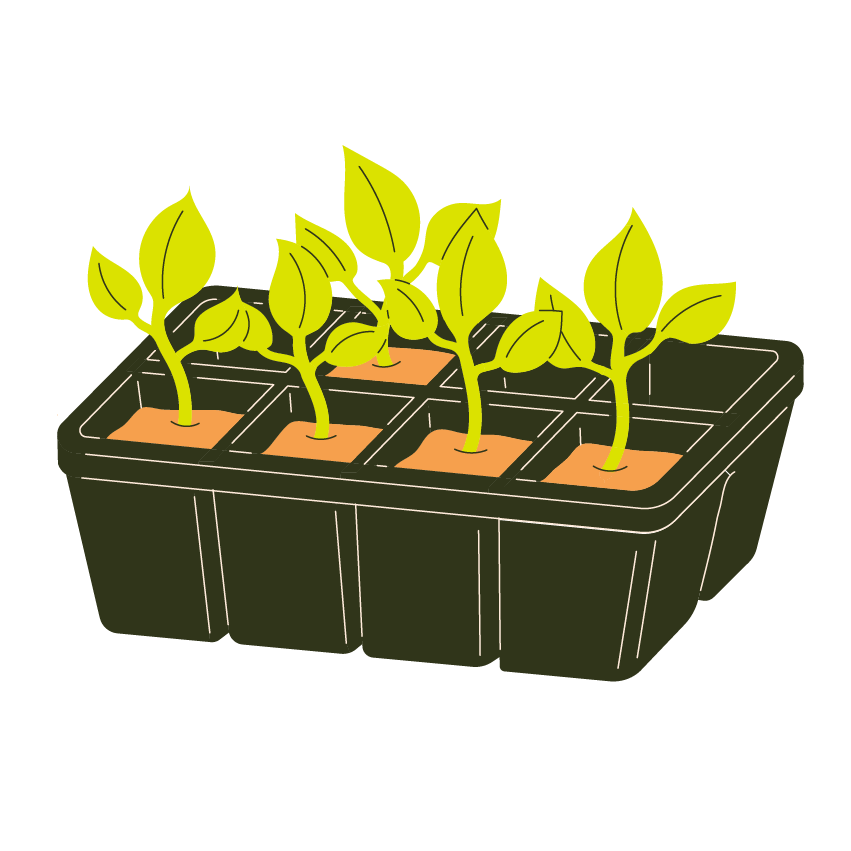A partnership project between TCV Scotland and the teams for ESOL provision, resettlement and Integration in North, South and East Ayrshire. This project aims to improve families and individuals experience of daily and social life, to grow confidence to visit greenspaces and to join into activities to learn about and engage in natural and cultural heritage activities.
The Conservation Volunteers (Building Roots Ayrshire)


Key Information
The Building Roots Ayrshire Project aimed to support integration for refugee families and individuals by providing opportunities to build confidence, learn and practice English, engage in their local communities and local projects and by making social connections in the Ayrshire area.
Key Information
Partnership
Partnership Council staff and ESOL teams in each of the three local authority areas (East, North, and South Ayrshire).
Geographical reach
East Ayrshire; North Ayrshire; South Ayrshire.
Dates
01/09/2021 – 30/11/2022.
Target Groups
Refugees and asylum seekers from Syria, Ukraine, Afghanistan, Iran, Yemen, Vietnam, Pakistan.
Project Type
Spreading good practice.
Background
TCV has experience facilitating activities for the refugee communities in the South East of Scotland and through these strong relationships learned the needs and barriers that this community faces. We know that they are often not able to visit places outside their area, do not know what places to visit, have lack the confidence, transport and money to access places which is why TCV responded to the need by providing safe welcoming spaces for families with their children to access local greenspaces and explore local culture and heritage.
Through pilot sessions across Ayrshire, TCV has learned that refugee families feel the same need. The refugee communities in each local authority area in Ayrshire have voiced their different needs and interests:
– In North Ayrshire, the emerging refugee community group listed “Discovering Scotland / trips” as one of their needs. Also, many families are from agricultural backgrounds and currently growing things in their garden, take enjoyment and pride in this. Therefore, they are keen to have a community growing project and space.
– In East Ayrshire, some families still lack the confidence to arrange outings or trips to nature sites themselves, but always enjoy taking part in local events. They are interested in activities to learn about Scotland and Scottish culture. With many of the men in employment or training programs, women and children’s activities are most needed by the families. They have also voiced interest in relaxing sessions in the outdoors supporting mental health and well-being.
– In South Ayrshire, most families live in flats and have mentioned their interest in gardening activities. Transport and entry fees are too expensive to visit sites, but the families would love to take trips and visit different greenspaces and heritage sites.
TCV’s activities will facilitate and respond to these needs of the refugee families in Ayrshire through the Building Roots project.
Involvement of New Scots in project
Over the course of the project, we have learned that having a project assistant from the refugee community has really helped encourage participants to engage in Building Roots sessions and feel comfortable. Creating a friendly environment to learn and socialise we felt was crucial and having a way for ESOL learners to form a connection with TCV was key to successful engagement.
Impact
The group gained a lot of new language skills, as observed by ESOL staff who said “they are now much more confident in introducing themselves – their name, home country and where they live. We have seen these introductions being delivered with much less anxiety, far more fluent language and stronger voices. Being able to confidently and competently introduce themselves is a crucial skill which learners will apply regularly outwith the project and their ESOL classes. They have gained experience in asking questions and gathering information about a partner to then voice to the group.”
Participants that were involved with community growing, such as planting the flower beds in Kay Park, now have that permanent connection to their local green space, one of the initial aims of the project. Many of the participants said they had visited the park in their free time to show their families the walks they had been on or the flower beds they were taking care of. This shows over the course of the project, the activities the group has taken part in has had a positive impact on participant’s confidence to explore their local area, which will certainly make them feel more at home in Scotland.
One of the initial aims was to tackle social isolation. Throughout this project, participants have taken part in various “get to know you” activities, through which they have formed friendships they wouldn’t have otherwise formed. The Building Roots sessions provided an opportunity to meet people outside the classroom and the group got closer and more comfortable with each other as the project went on.
Participants not only formed friendships with each other but became closer to their ESOL tutors and TCV staff. The more confident participants became with their English, the more likely they were to initiate a conversation in English with a native speaker. We saw increasing numbers of learners coming out of their shells as they realised they were in a safe space where they wouldn’t be judged if they got something wrong.

Challenges encountered
Engagement with ESOL learners in North and South Ayrshire was significantly lower than that of East Ayrshire. North and South Ayrshire ESOL classes did not run as closely as in East, meaning tutors were not coming along to Building Roots sessions and we did not have a direct connection with learners. In South we had 2 English teachers participating in sessions, however they did not have direct contact with ESOL learners which made getting new members to the group challenging. Initiating a group from scratch in a new area we found we needed a few core volunteers that turned up every week to get the ball rolling, then more new participants were likely to start attending.
Overcoming bad weather, particularly in winter, was a slight challenge. A lot of the ESOL learners were used to hotter weather and so were less inclined to come out on cold days or may not have had the appropriate clothing to do so. An indoor space for a coffee break would have meant ESOL learners were more keen to join the group.
At the start of every session we would do a health and safety talk to ensure the group knew to be aware of any risks when taking part in activities. This proved slightly challenging due to the varying levels of English capabilities within the group.
Solutions
To overcome the weather issues, ESOL staff offered an indoor classroom as an alternative site when the weather was poor. This meant the sessions still had the same high attendance. In North Ayrshire, group members were able to move into one of the polytunnels for shelter, this is something we wish we had also built at the allotment in South Ayrshire.
To overcome the challenge around levels of English, we found that having print-outs were useful for communicating safety information, such as a sheet that demonstrates tool safety with pictures. For some sessions we had a Dari translator attend for the families from Afghanistan. As the group got bigger, we asked some of the more advanced English speakers to assist us with some translation of health and safety risks.
Reflections
TCV partnership work has been crucial to establishing new groups and getting consistent engagement during the Building Roots project. ESOL tutors provided a familiar face to encourage learners to come along, with the assurity that they would know someone at the sessions. Overcoming that initial feeling of discomfort for first-time participants was very important. Having a few core volunteers that we knew were comfortable and committed to come along most sessions meant that any new members didn’t feel the focus was all on them, they could blend into the background or join in as much as they wanted.
Having the project assistant from the refugee committee also contributed to new volunteers feeling at ease. Group members found that he was there to answer questions and help with English if they needed it but still encouraged them to use their English-speaking skills.
TCV has also learnt that activities involving food sharing and getting to know others while practicing speaking English have the most engagement and the most positive feedback. A love of food and cooking was a common interest all the Building Roots group members had. After we discovered this, we ensured that we had regular barbecues for families. These sessions gave the group something to look forward to and prepare their own food for, which they took pride in.
It is important to have an indoor location as an alternative plan in case the weather is poor, this proved essential in keeping attendance high. Hiring an indoor space or having a polytunnel on site could be alternative solutions to an outdoor session. If attendance decreases for a long period of time, it can be a challenge to increase it again.
Contact
Email:
a.hamilton@tcv.org.uk


